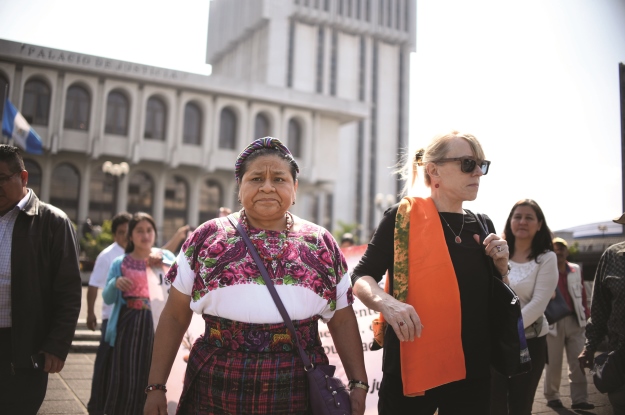Latin America’s failure to pay attention to women is holding the region back. Despite great success in reducing poverty and income inequality in the first decade of the 21st century, the region’s yawning gender gap continues to be a brake on future development. No clearer example of this exists than in Central America, where an inability to ensure women’s equal access to education, health care and employment has stymied social and economic progress.
Statistics show that most Central American countries had achieved the United Nations’ Millennium Development Goals by 2015. That is a considerable achievement. But throughout the 2000s, average economic growth in the subregion seldom met or exceeded the Latin American and Caribbean average of 4 percent. The reason for this disconnect? The work done to reach the millennium goals had almost no impact on improving women’s everyday lives.
Until now, policymakers have been quick to assume that “going on the right track” when it comes to women’s rights is acceptable. But considering that women make up more than half the population of Central America, it is clear that their ability to participate in national economies is essential for realizing the region’s potential.
This means more than just ensuring basic human rights or creating new jobs: It means empowering women as agents of change. What is needed are improved legal and regulatory tools to ensure that women’s needs are explicitly addressed, along with tackling related challenges such as improving maternal health, reducing child mortality, and combating malaria and other infectious diseases.
How can these be achieved?
For a start, Central American governments can build on educational and health care reforms that have already helped broaden access to primary education and health care. Social protection programs, such as conditional cash transfers targeted to women and children in poor households, have improved family income and made an important contribution to family well-being.
However, these programs have not gone far enough. Gender inequality still prevails in access to higher education. Adequate counseling for sexual and reproductive health is almost nonexistent. And women continue to face systemic discrimination in the workplace, including lower pay for the same jobs done by men.
Informal employment, a key indicator of marginalization, has reached alarmingly high levels for women in El Salvador, Guatemala and Honduras (known as the Northern Triangle). Such employment may account for over 70 percent of total female workers in the region, according to the International Labor Organization. In other words, seven out of ten women in these countries lack access to the social security and other protections that formal employment provides.
What’s more, poor working conditions and low pay can condemn women and their families to the lowest rungs of the economic ladder. Social protection programs in Central America have so far concentrated more on social assistance and less on promoting life skills and job training, limiting women’s ability to acquire the necessary tools and qualifications to enter the labor market on more favorable terms. If women are ever to enter the labor market on a level playing field, they will need an adequate legal framework and pro-active labor market policies.
The beginnings of such a legal framework exist. Central American countries have enacted laws on violence against women, on protecting gender equality, and on advancing the empowerment of women based on international conventions on women’s rights. But policymakers throughout the Northern Triangle have been distracted by the grim challenges of the century’s second decade: pandemic violence, increasing emigration flows, outbreaks of infectious diseases such as the Chikungunya and Zika viruses, and external economic shocks.
Gender issues, as a result, have shifted to a lower priority, and we have grudgingly accepted a slower path to gender equality.
But that misses the point. Gender equality is especially relevant in countries where violence, emigration and female-headed families have transformed the traditional social fabric. Across Central America, women now play a critical role in maintaining social stability and providing basic needs for their families. The region’s dire challenges should lead policymakers to focus on improving the status of women and integrating them into national economies as a necessary part of the solution to entrenched social problems.
Unless governments move more resolutely to address women’s needs and close the gender gap, Central America’s hopes for building more mature democracies and achieving sustainable development will not be realized. One can probably make the same prediction for the region as a whole.
—
Ávalos is an economist and international social policy advisor, and former president of the Social Investment Fund in El Salvador. A Vanderbilt University and KU Leuven graduate, she was a 2015–16 visiting scholar at the David Rockefeller Center for Latin American Studies.





